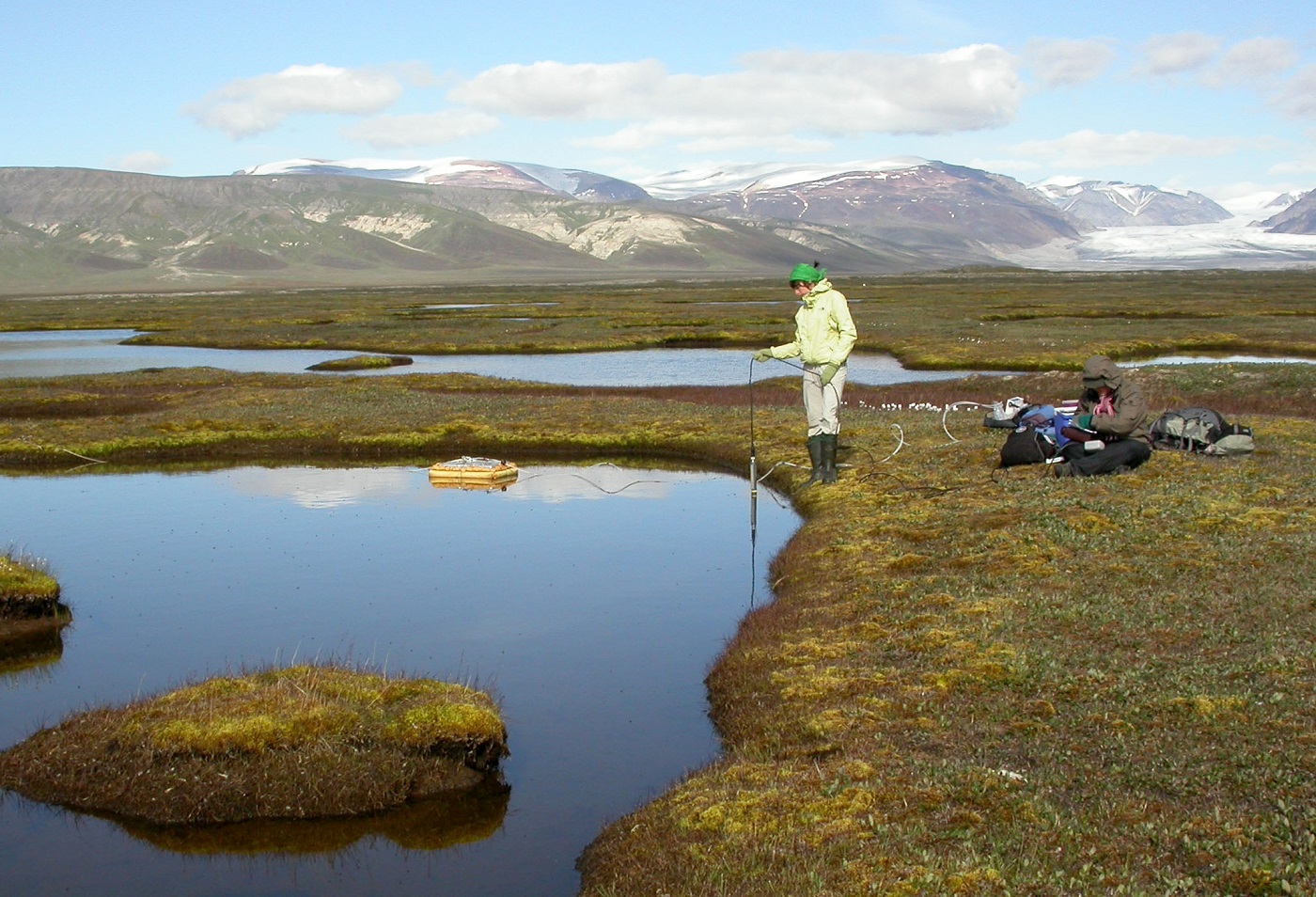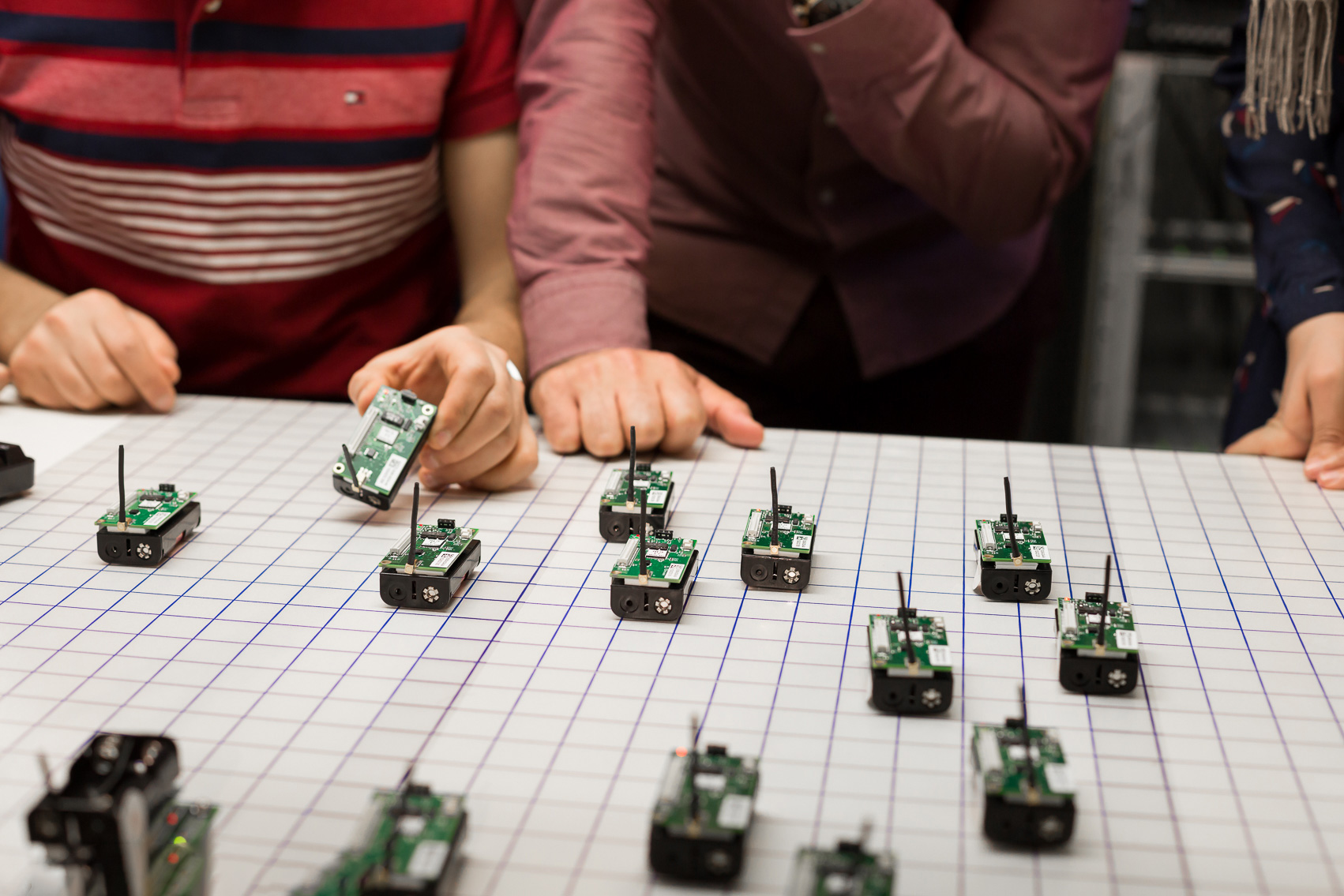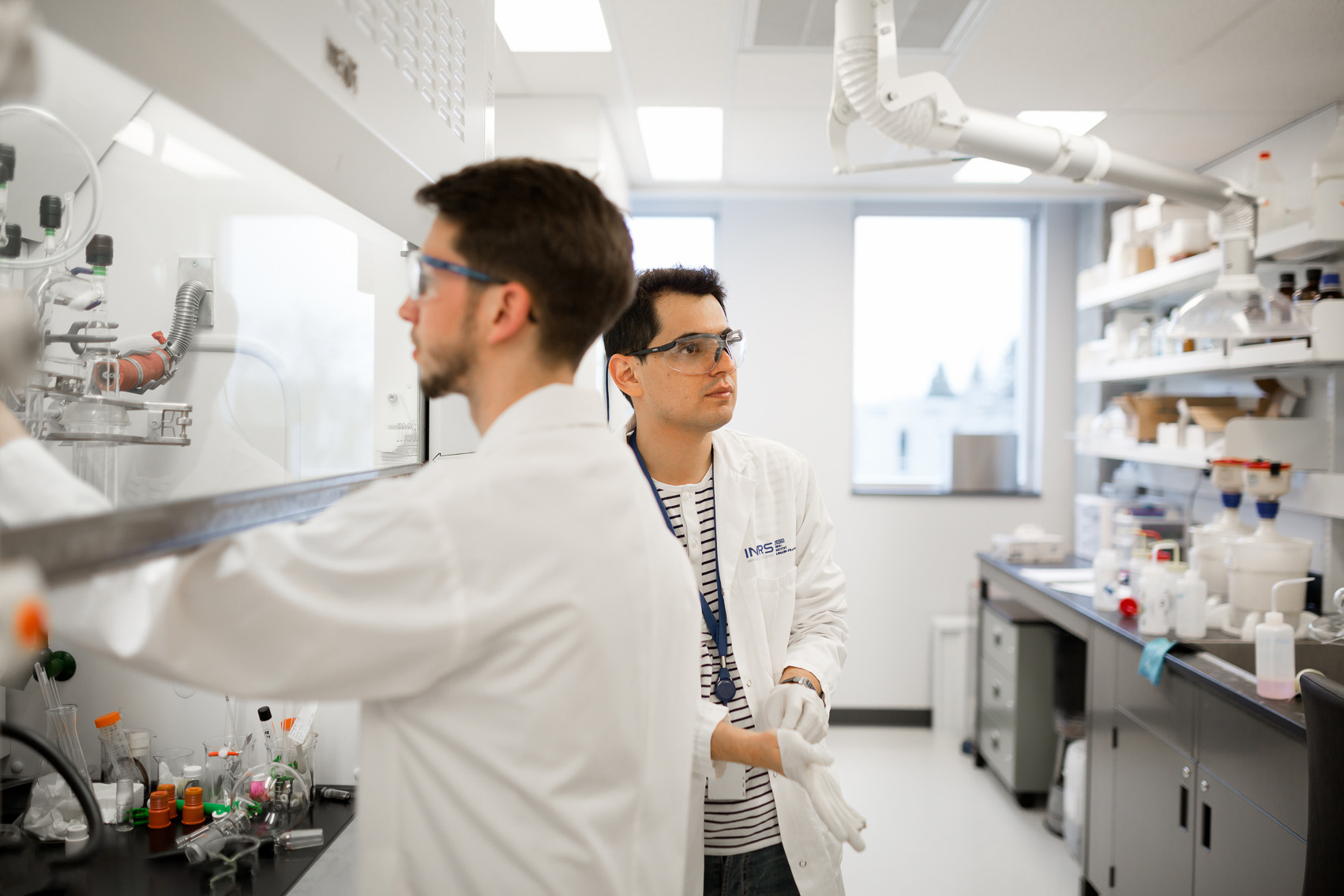State-of-the art facilities provide research and training opportunities for a new generation of scientists in four areas crucial to Quebec’s development.
Progress, here and now.
Through research.
INRS is the world leader in sustainable development research. In partnership with industry, universities, government and the community, our scientists are working on key issues for Quebec:
Natural resources, ecosystems and climate

The Centre Eau Terre Environnement research centre focuses on sustainable development in Quebec, especially with regard to water and land resources and environmental protection. It plays a central role in scientific and technological developments aimed at fostering resource protection, development, and enhancement.
Energy transition, nanotechnologies, photonics and telecommunications

The Centre Énergie Matériaux Télécommunications research centre primarily conducts basic and applied research in areas important for Québec’s socioeconomic development, especially telecommunications, sustainable energy, advanced materials, and ultrafast photonics. These areas are critical for developing information technology and new applications in the biomedical, energy, aerospace, and transportation sectors.
Global health and biotechnology

Researchers at the Centre Armand-Frappier Santé Biotechnologie research centre seek to better understand the life cycles and functioning of bacteria, viruses, and other microorganisms. They also work to identify and characterize the effects of environmental pollutants on human health.
In addition to drawing on biotechnology and microorganisms with a view to improving environmental quality and managing contamination problems, they study functional foods and food preservation. They also conduct pharmacochemical research to better understand the physiology of the cardiovascular and nervous systems, as well as the mode of action of drugs.
Social and cultural transformations

The Centre Urbanisation Culture Société research centre has built a reputation for high-quality applied research on societal issues of importance in Québec. The centre’s teams focus on urban and regional dynamics; culture; and social ties, populations, and different life stages. These broad areas encompass such salient topics as cities for everyone; governance and sustainability; culture and regional innovations or culture and the economy; changes in family situations; population dynamics and the transformation of Quebec society; and the transformation of work.
At a glance
-
In 2024, INRS ranked first in the world in sustainable development research according to the Association for the Advancement of Sustainability in Higher Education.
-
In 2023, INRS ranked first in Quebec and third in Canada among the top-performing universities in terms of research intensity, according to Research Infosource.
-
Unique infrastructures available to the research and industrial community.
-
80 international collaboration agreements with some 80 universities in some twenty countries.
-
170 professors dedicated to research and the mobilisation of knowledge with stakeholders.
-
800+ master’s and doctoral students who aspire to better understand and resolve strategic issues.
-
4,000+ alumni who are changing the world thanks to their interdisciplinary scientific training.
-
40+ most cited scientists in the world, all disciplines combined, according to Stanford University's annual rankings.
-
Collaboration with more than twenty academic institutions, including those in France, Tunisia, Argentina, Vietnam, Italy, Mexico and the United States.
-
Partnerships with hundreds of stakeholders: industry, government, and civil society.
